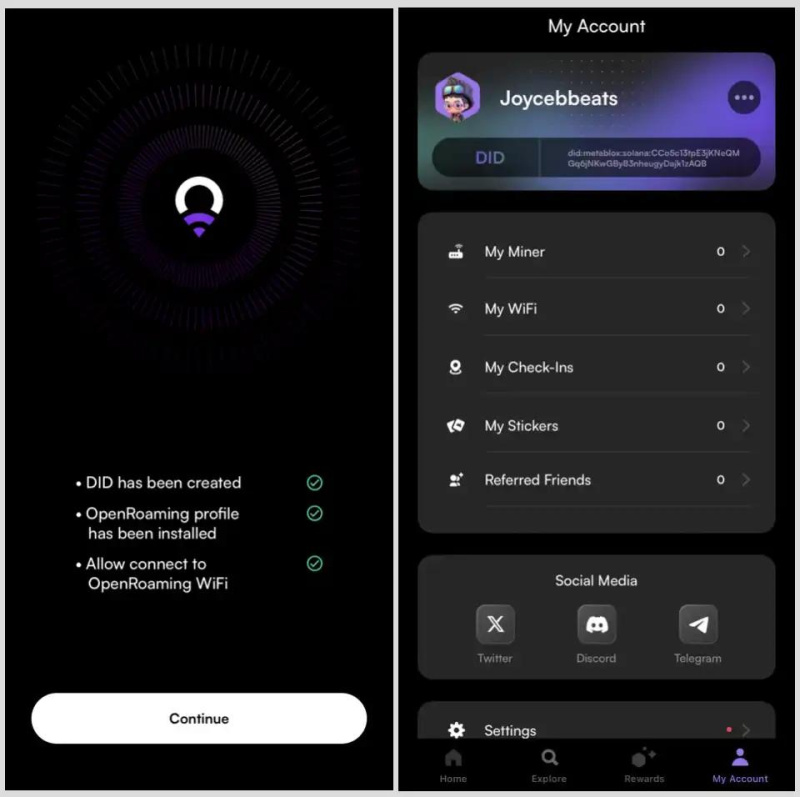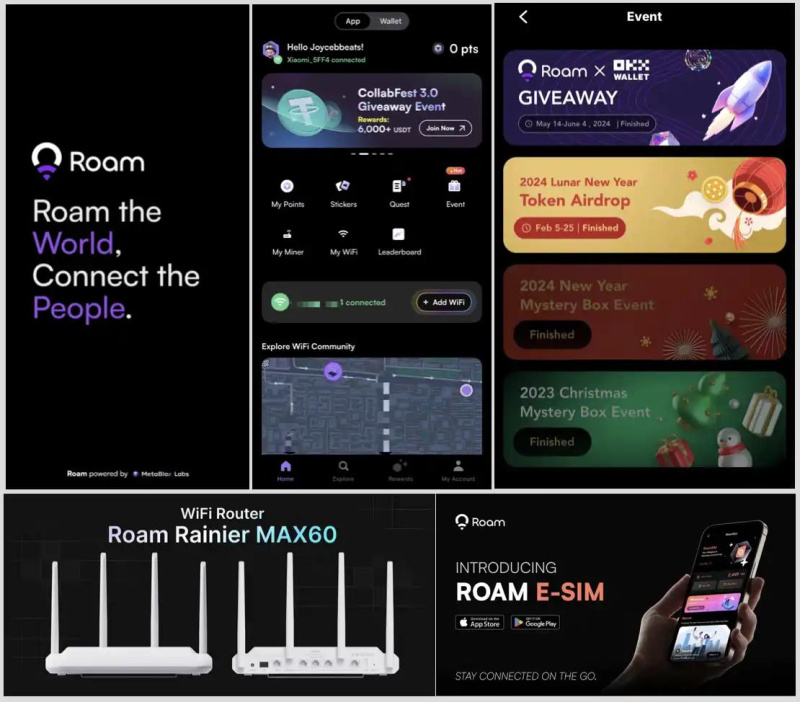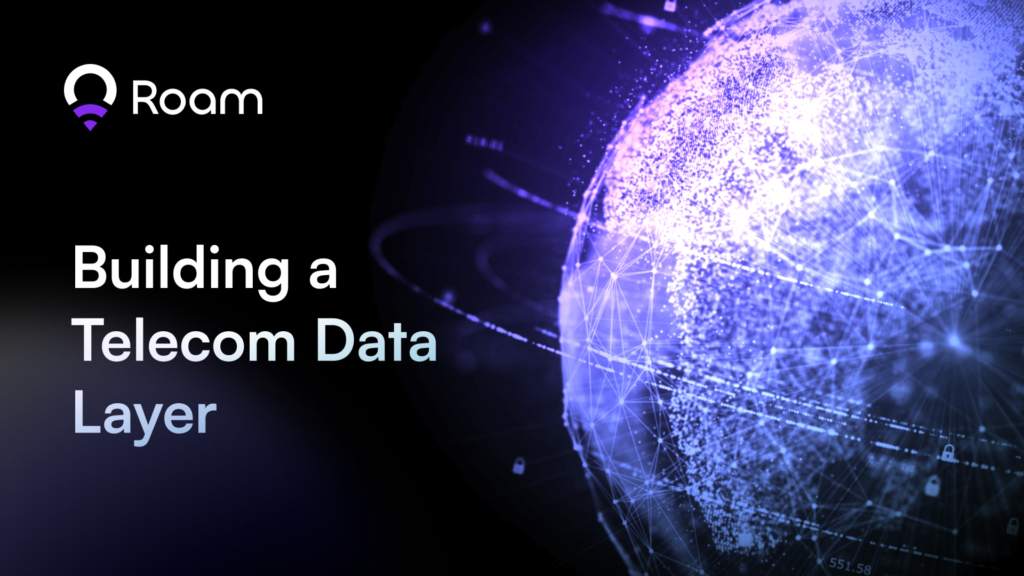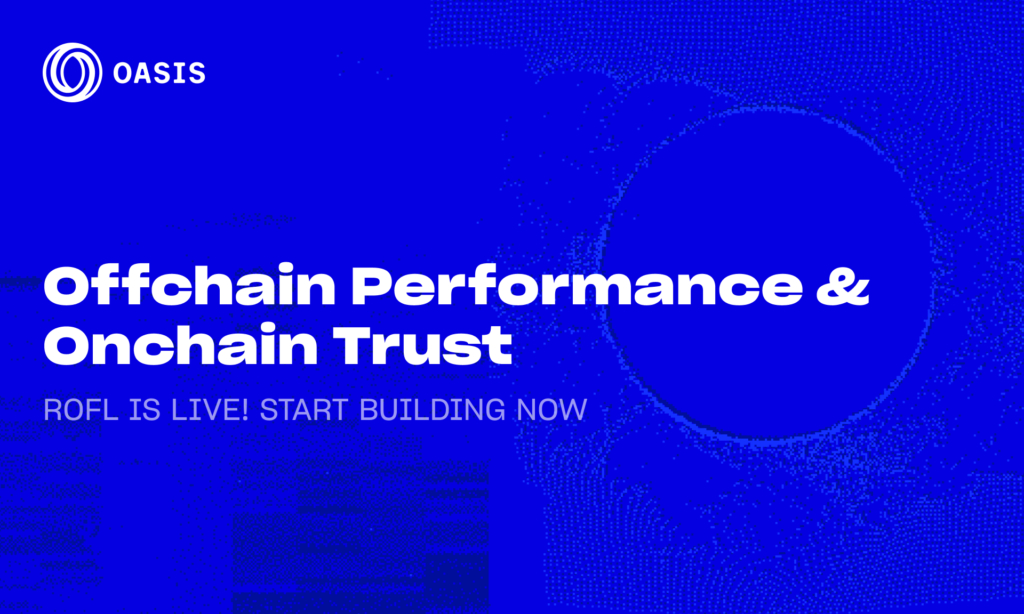Roam, a decentralized WiFi roaming network, has positioned itself as a foundational player within the emerging DePIN (Decentralized Physical Infrastructure Network) ecosystem. While other projects often concentrate on niche aspects, Roam is focused on creating a global open wireless network, providing infrastructure that could support decentralized telecom services.
Addressing Location Verification in Decentralized Systems
Roam’s decentralized network offers a potential solution to challenges like location data manipulation in sectors such as gaming. Some users exploit GPS systems to circumvent geographic restrictions or gain advantages, leading to fairness issues. Roam aims to mitigate this by providing precise location verification using decentralized identities (DIDs) and verifiable credentials (VCs), ensuring accurate GPS data and reducing the risks of location-based exploits. This capability is just one of many applications Roam envisions for its infrastructure.
Expanding the Roam Ecosystem
Roam’s primary mission is to establish a decentralized WiFi OpenRoaming™ network. Currently operating in over 190 countries and zones with approximately 750,000 self-deployed nodes, Roam connects users to a larger global network of 3.5 million OpenRoaming™ nodes. Through the Roam app, users can automatically connect to available nodes without the need for repeated logins.
Central to Roam’s protocol is its decentralized user identity verification system. When a user installs the Roam app, a digital identity (DID) is created, and credentials are stored on the blockchain. This enables seamless connectivity, with user identities verified each time they access a WiFi node.

Roam’s Products: Hardware and Connectivity Solutions
Roam’s hardware and software solutions complement its decentralized network. One notable product is the Roam Rainier MAX60, a WiFi router integrated with blockchain mining capabilities. Users can earn Roam Points, convertible into Roam tokens, by maintaining active devices. Roam also offers an eSIM solution, providing international connectivity without the need for physical SIM cards, thereby enhancing global data access.
Building a Decentralized Telecom Data Layer
Roam’s ambitions extend beyond WiFi services, positioning itself as a “Decentralized Telecom Data Layer.” Much like how Layer 1 blockchains such as Ethereum and Solana provide a foundation for decentralized applications, Roam aims to offer infrastructure that supports other DePIN projects. Roam currently ranks third in node count among DePIN networks, with more than 750,000 nodes, offering the scalability required for diverse decentralized applications.

Roam APP, Roam Rainier MAX60, Roam eSIM
Secure, Seamless Connectivity with Decentralized Architecture
Roam’s decentralized network architecture is designed to provide stable, secure connectivity. This enables users to move between WiFi nodes without disruptions, similar to how Layer 1 blockchains validate transactions. Roam’s identity verification ensures privacy and security across its network.
Leveraging IoT and Blockchain for Telecom Data
Roam’s network collects and records data such as user identities, locations, and timestamps on the Solana blockchain, contributing to a decentralized ledger of telecom data. In the future, Roam plans to establish cross-chain bridges with other blockchains, including Arbitrum and IoTeX, to enhance collaboration with other decentralized infrastructure projects. This represents a departure from traditional centralized Internet of Things (IoT) systems.
Community-Driven Mining and Incentives
Roam’s network encourages user participation through a community-driven mining system. Similar to Proof-of-Stake models, users contribute to the network by adding or operating WiFi nodes and performing check-ins at hotspots. In return, they can earn Roam Points, which are convertible into tokens, incentivizing engagement and supporting the decentralized network’s growth.
Aiming to Become a Public Utility for DePIN
Roam’s long-term goal is to establish itself as a public utility within the DePIN sector, providing foundational infrastructure for decentralized communication networks. By fostering an open-access model, Roam aims to grow its user base and attract more projects to its ecosystem. Its scalable infrastructure, combined with community participation, positions it as a key player in the future of decentralized networks.
About Roam
Roam transforms internet access with a decentralized network and OpenRoaming™, connecting you seamlessly to millions of OpenRoaming™ WiFi access points. It simplifies connectivity and enhances security via its proprietary DID solution. Roam permits the capture and utilization of rich user data (who, what, where) while promising the anonymity of decentralized IDs to permit data incentivization without compromising user identity.
Disclaimer: Any information written in this press release does not constitute investment advice. Optimisus does not, and will not endorse any information about any company or individual on this page. Readers are encouraged to do their own research and base any actions on their own findings, not on any content written in this press release. Optimisus is and will not be responsible for any damage or loss caused directly or indirectly by the use of any content, product, or service mentioned in this press release.



